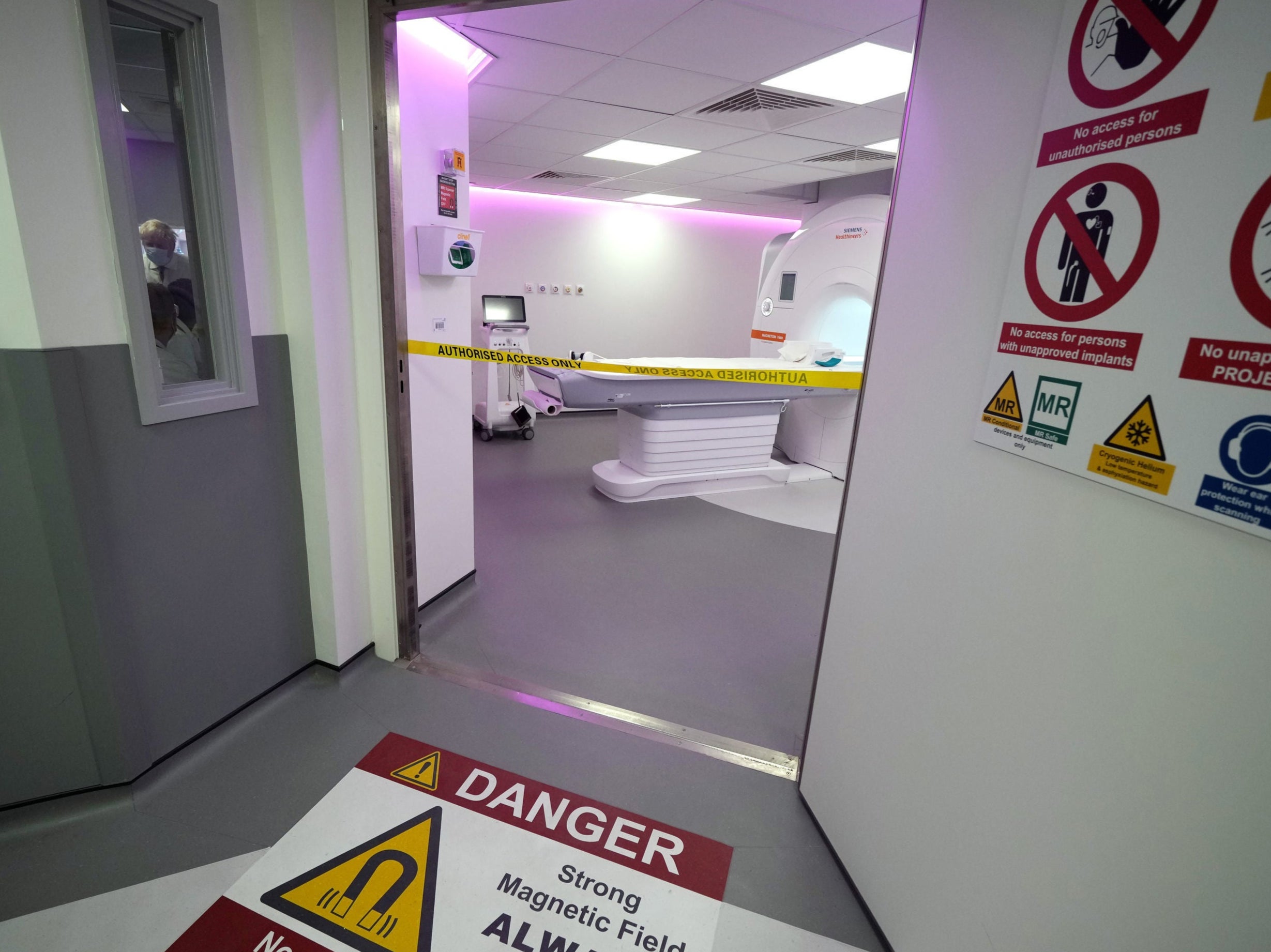NHS hospitals still using out-of-date MRI and CT scanners, report says
Government says it is ploughing more than £500m into replacements

Your support helps us to tell the story
From reproductive rights to climate change to Big Tech, The Independent is on the ground when the story is developing. Whether it's investigating the financials of Elon Musk's pro-Trump PAC or producing our latest documentary, 'The A Word', which shines a light on the American women fighting for reproductive rights, we know how important it is to parse out the facts from the messaging.
At such a critical moment in US history, we need reporters on the ground. Your donation allows us to keep sending journalists to speak to both sides of the story.
The Independent is trusted by Americans across the entire political spectrum. And unlike many other quality news outlets, we choose not to lock Americans out of our reporting and analysis with paywalls. We believe quality journalism should be available to everyone, paid for by those who can afford it.
Your support makes all the difference.NHS hospitals are still using body-scanning equipment long past its recommended lifespan which could potentially have negative impacts on care, according to a report.
Channel 4’s Dispatches used freedom of information rules to find out how many CT and MRI scanners were in use after the 10-year mark, when NHS bosses recommend they be retired. More than one-quarter (27.1 per cent) of trusts in NHS England had at least one out-of-date CT scanner, a figure which leapt to 34.5 per cent for MRI machines.
Among the potential problems with obsolete units are the need for higher radiation doses to achieve image quality comparable to newer machines, and an end to software upgrades reducing their usefulness, according to an NHS report from last year. Ultimately these and other shortcomings can impact care, the document said.
Dispatches found several hospitals were using outdated CT scanners. All four machines at the Royal Berkshire Hospitals Trust were 10 or more years old, while King’s College Hospital was found to possess a CT scanner acquired in 2007 and another that was 11 years old.
One-third of MRI machines at the latter trust were more than 13 years old, according to the programme.
The oldest pieces of tech uncovered by Dispatches were a 16-year-old CT scanner at Royal Cornwall Hospitals, which the trust said it was replacing, and a 21-year-old MRI machine at Great Ormond Street.
Trusts were also found to be using ancient x-ray technology dating to the 1970s. One unit, at St George’s University Hospitals, was 44 years old.
A Department of Health and Social Care spokesperson said: “We have backed the NHS with £525m to replace diagnostics equipment over the last two years and have recently set up 40 new one-stop-shop diagnosis centres in the community to deliver 2.8 million more scans for patients across the country.
“There are over 9 per cent more radiology doctors compared to the same period in 2019 and we have provided £52m to further invest in the cancer and diagnostics workforce over the next two years.”
This article was amended on 26 October 2021 to remove a reference to the claim that half the scanners at London North West University Healthcare were more than 16 years old. The trust told The Independent that none of its scanners were more than 10 years old and many had been recently replaced.
Join our commenting forum
Join thought-provoking conversations, follow other Independent readers and see their replies
0Comments